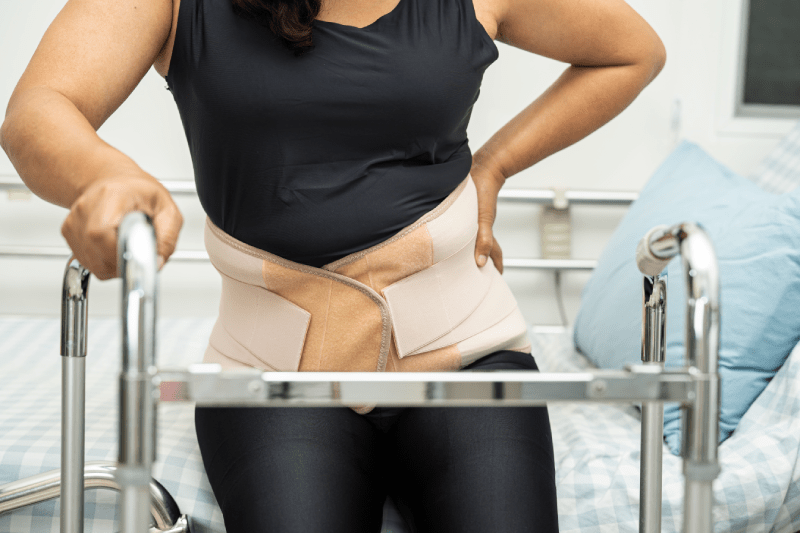Why Is Turkey Preferred For Gastric Bypass Surgery?
Turkey stands out for Gastric Bypass surgeries by offering significantly more affordable prices compared to Western countries, alongside modern hospitals and highly experienced surgical teams. Turkish hospitals comply with international accreditation standards, while surgeons have performed thousands of successful operations in this field. This balance of high quality and affordable cost, combined with the opportunity for patients to turn their post-operative recovery into a relaxing vacation, has made the country a global health center. This combination is particularly attractive for patients arriving from Europe and the Middle East, seeking expert care without the prohibitive costs often found elsewhere.
What Does The Cost Of Gastric Bypass Surgery Cover?
The cost of Gastric Bypass surgery in Turkey is generally presented as all-inclusive packages, which are quite comprehensive. Typically, this cost includes the surgical procedure itself, all medical supplies used, anesthesia fees, and post-operative hospital stay (usually 3-4 days). Furthermore, many packages cover airport transfers, accommodation, and all necessary pre-operative tests (blood tests, cardiology, internal medicine examinations), as well as initial consultations provided by the surgical team. This transparent pricing system aims to prevent international patients from encountering unexpected additional costs during their weight loss journey.
How Does One Become A Suitable Candidate For Gastric Bypass?
A suitable candidate for Gastric Bypass surgery is generally determined by the patient’s Body Mass Index (BMI) and overall health status. Most surgeons consider individuals with a BMI of 40 or higher, or those with a BMI between 35-40 who have serious obesity-related co-morbidities such as diabetes, severe sleep apnea, or high blood pressure, as candidates. The patient is expected to have previously attempted and failed other weight loss methods like diet and exercise. Additionally, the patient’s psychological readiness for the surgery and the lifelong commitment to post-operative lifestyle changes is a crucial criterion for selection.
What Is The Level Of Experience Of Surgical Teams In Turkey?
Surgeons and teams specializing in bariatric surgery in Turkey are highly experienced and internationally trained. Centers in major cities, in particular, perform hundreds of Gastric Bypass operations annually. These high case volumes allow surgeons to continuously improve their skills in managing rare complications and applying the latest laparoscopic techniques. Patients can easily verify that these surgical teams hold international certifications, memberships, and regularly participate in major global congresses. This accumulated expertise significantly increases both the success rate of the operations and patient safety during and after the procedure.
What Are The Necessary Medical Tests Before Surgery?
Before Gastric Bypass surgery, a series of comprehensive medical tests and consultations are required to fully evaluate the patient’s general health and surgical risks. These tests typically include a complete blood count, kidney and liver function tests, thyroid panel, and vitamin levels. Furthermore, an ECG and cardiology examination are performed to assess heart health, along with a chest X-ray and respiratory function test to check respiratory capacity. Endoscopy by a gastroenterologist is also frequently requested. This detailed pre-operative assessment ensures the surgery can be performed safely with minimal potential risk to the patient.
How Is The Gastric Bypass Surgery Performed?
Gastric Bypass is typically performed using laparoscopic surgery, a minimally invasive method. The surgeon makes several small incisions in the abdominal area and performs the operation using specialized instruments and a camera inserted through these ports. The procedure consists of two main steps: first, a small pouch is created in the upper part of the stomach (which serves as the new stomach), and then a section of the small intestine is connected to this new stomach pouch. This modification both restricts the amount of food consumed and reduces nutrient absorption, accelerating weight loss effectively.
What Is The Typical Duration Of Hospital Stay?
The duration of the hospital stay after Gastric Bypass surgery generally ranges between 3 to 4 days in Turkey, although it depends on the patient’s overall recovery speed and the clinic’s specific protocols. During this period, patients are under the close supervision of the surgical team. Fluid intake is initiated immediately after the surgery, and patients are encouraged to get up and walk soon after. This short hospitalization period ensures the patient’s safe recovery while allowing them to start the process of quickly returning to their normal life upon discharge from the facility.

How Long Should I Stay In Turkey After The Operation?
It is generally recommended that you stay in Turkey for a total of 7 to 10 days after the surgery. Following the 3-4 days spent in the hospital, the remaining time should be spent resting in a hotel or accommodation facility close to the hospital, attending follow-up appointments. This additional period is critical for the surgical team to closely monitor your recovery process, check wound sites, and intervene quickly in case of any potential early complications. Specialists highly recommend completing this duration before attempting safe air travel back to your home country.
What Accreditations Do Hospitals In Turkey Hold?
Many hospitals in Turkey performing bariatric surgery hold highly respected and internationally recognized accreditations. Among the most well-known and trusted is the JCI (Joint Commission International) accreditation. JCI signifies that a hospital meets the highest standards in terms of patient safety and quality of care. Additionally, some clinics possess national Ministry of Health approvals and certifications from organizations such as the European Association for Endoscopic Surgery. These accreditations provide a significant assurance of quality for international patients seeking treatment.
What Should Be The Nutritional Regimen After Surgery?
The nutritional regimen after Gastric Bypass is a lifelong, gradual process requiring a serious lifestyle change. The initial weeks start exclusively with liquid foods, followed by pureed and soft foods. A slow transition to solid foods begins approximately one month later. Patients are strictly required to eat small portions slowly and chew thoroughly. Prioritizing high protein intake, drinking plenty of water to prevent dehydration, and consistently using the vitamin/mineral supplements recommended by the surgical team are of critical importance for successful long-term outcomes.
How Much Weight Loss Should I Expect From The Surgery?
Gastric Bypass surgery is one of the most effective weight loss methods among bariatric surgeries. Patients can generally expect to lose an average of 60% to 80% of their excess weight within the first 1-2 years. The rate of weight loss is highest in the initial months and gradually slows down over time. However, this success largely depends on the patient’s adherence to post-operative nutritional rules, regular exercise, and sustained lifestyle changes. The surgery is merely a tool; long-term, sustainable success is ultimately in the patient’s hands.
What Are The Potential Risks Of Gastric Bypass?
Gastric Bypass is a major surgical operation and carries potential risks, like any surgical procedure. Early-stage risks include bleeding, infection, anesthesia-related complications, and most importantly, the risk of a leak at the newly created stomach pouch and intestinal connection site. Long-term risks include nutritional deficiencies (vitamin and mineral), Dumping Syndrome, ulcer formation, or, rarely, bowel obstruction. An experienced surgical team and modern facilities take all necessary precautions to minimize these potential risks effectively.
How Is Post-Operative Pain Management Provided?
Gastric Bypass surgery, typically performed laparoscopically, results in less pain compared to traditional open surgeries. During the first few days after the operation, patients are closely monitored with strong intravenous or oral pain medications. Upon discharge from the hospital, they are provided with prescription oral painkillers for use at home. Surgeons and nurses implement special protocols to ensure pain is continuously controlled and to maximize patient comfort throughout the early recovery period. The intensity of pain usually significantly decreases within a few days.
What Should I Consider When Choosing A Hospital?
When selecting a hospital in Turkey, one should first check if the hospital holds international accreditations (such as JCI). It is vital to confirm if the hospital has a high volume of cases and experience in bariatric surgery. The cleanliness and technological equipment of the hospital environment are also important factors. Additionally, the existence of an international patient coordination team that can communicate with foreign patients and how they manage post-operative follow-up processes play a crucial role in the decision-making process. A reliable intermediary company like Cure Holiday can provide valuable support during this selection process.
What Kind Of Diet Should I Follow Before Coming To Turkey?
A pre-operative preparation diet is generally required in the weeks leading up to your Gastric Bypass surgery in Turkey. The main goal of this diet is to shrink the liver size and reduce abdominal fat. A smaller liver provides the surgeon with better visibility during laparoscopic surgery and reduces the risk of complications. This diet usually consists of low-calorie, high-protein liquid or semi-solid foods. Your surgeon’s team will provide you with a specific protocol detailing exactly what you should consume for optimal surgical readiness.
What Is The Recovery Time After The Operation?
The physical recovery time after Gastric Bypass surgery generally tends to be quite short, although it varies from patient to patient. The first week after being discharged from the hospital should focus primarily on rest. Most patients can return to work or their daily routine activities about 2 to 4 weeks after the surgery. However, it is crucial to follow the surgeon’s instructions to avoid heavy lifting and strenuous exercise for several weeks. Regaining full energy and strength may take a few months, but the continued weight loss often helps keep motivation high.
Under What Circumstances Can The Surgery Be Canceled Or Postponed?
Gastric Bypass surgery can be canceled or postponed under specific conditions to ensure patient safety. If serious risk factors are detected in the heart or lungs during pre-operative tests, the surgery will be postponed until it is safe to proceed. Additionally, if the patient fails to adhere to the preparation diet and the liver does not shrink sufficiently, the surgeon may decide to postpone the operation. An unexpected deterioration in the patient’s general condition on the day of surgery or if the anesthesia team identifies significant risks are also reasons for cancellation.
What Is Necessary For The Long-Term Success Of The Surgery?
The long-term success of Gastric Bypass surgery depends 80% on the patient’s own efforts. The key to success is maintaining nutritional rules for life, meeting protein targets, and consistently taking the recommended vitamin/mineral supplements. Regular physical activity is one of the most important ways to maintain weight loss and preserve muscle mass. Furthermore, attending regular doctor check-ups is vital for monitoring co-morbidities and the early detection of any potential nutritional deficiencies.
Are Vitamin Supplements Required For Life After Surgery?
Yes, vitamin and mineral supplements are required for life after Gastric Bypass surgery. Since the operation bypasses a significant portion of nutrient absorption in the small intestine, the body cannot adequately absorb important nutrients like iron, B12, folate, calcium, and Vitamin D. These deficiencies can lead to serious health problems. Therefore, it is absolutely essential for your long-term health to regularly take the multivitamin, calcium/Vitamin D, and B12 supplements recommended by your surgical team for the rest of your life.
Is Interpreter Support Available For Surgery In Turkey?
Hospitals and intermediary agencies specialized in health tourism in Turkey routinely offer professional interpretation services and have staff fluent in foreign languages. This ensures that patients do not experience any language barriers when communicating with surgeons, anesthesiologists, and nurses. Interpreter support is a critical service, especially for the accurate understanding of vital pre-operative information, risk explanations, and post-operative care instructions. This helps patients feel secure and ensures clear communication is maintained throughout the entire process.
What Is Dumping Syndrome After Gastric Bypass?
Dumping Syndrome is a condition that can occur in patients who have undergone Gastric Bypass surgery, referring to rapid gastric emptying. It is triggered when high-sugar or high-fat foods move too quickly from the small stomach pouch into the small intestine. Symptoms of Early Dumping Syndrome include nausea, abdominal cramps, diarrhea, rapid heart rate, and dizziness. This condition actually serves as a beneficial feedback mechanism, guiding patients to avoid unhealthy foods and thus aiding in weight loss. Adhering to proper nutritional rules largely prevents this syndrome.

How Are Long-Term Controls Performed After Surgery?
Long-term controls for international patients who have had surgery in Turkey are usually conducted within a structured follow-up plan. The first year typically requires check-up appointments at 3, 6, 9, and 12 months, followed by annual checks thereafter. When patients return to their home country, they continue their follow-up remotely (via video conference or phone) with the clinics. It is important for the patient to collaborate with a local internal medicine or family doctor and to undergo regular blood tests. The clinic will evaluate the test results and update nutrition or supplement recommendations as needed.
What Should Be Done In Case Of Potential Emergencies?
Symptoms such as high fever, severe abdominal pain, persistent vomiting, or rapid heart rate that may appear in the early period after Gastric Bypass surgery (the first 1-2 weeks) can be signs of an emergency. In such a situation, the patient should immediately contact the international patient coordination team of the clinic where the surgery was performed. Clinics must provide a 24/7 accessible hotline for emergencies. If the patient is still in Turkey, they will be directed to the hospital immediately; if they are in their home country, they must go to the local emergency department and ensure the Turkish surgical team can communicate with the local doctor.
Are Special Preparations Required When Traveling To Turkey?
Some special preparations will be beneficial when traveling to Turkey for medical purposes. Firstly, you should pack soft and loose-fitting clothing for use after the surgery. A neck pillow and compression socks for long flights can help reduce the risk of blood clots. It may be useful to bring your own specialized protein supplements or liquid diet products with you. Additionally, purchasing travel and health insurance will provide extra security for unforeseen circumstances. It is also important to carry both digital and printed copies of all your medical documents.
Does Hair Loss Occur After Gastric Bypass?
Yes, temporary hair loss is a very common occurrence within the first 3 to 6 months after Gastric Bypass surgery. This shedding results from the physiological shock experienced by the body due to rapid weight loss and surgical stress. The hair loss typically stops on its own within about a year, and hair usually begins to regrow. To manage this condition, the surgical team will specifically advise you to focus on adequate protein intake and vitamin supplements that support hair health, such as biotin and zinc.
When Should Exercise Be Started After The Operation?
Starting exercise after surgery is a vital part of recovery and must be gradual. Patients are encouraged to walk immediately after the operation while still in the hospital. For the first 2-4 weeks after discharge, only light walking should be performed. Heavy lifting and strenuous abdominal exercises must be avoided for at least 6-8 weeks, pending your surgeon’s approval. As recovery progresses, brisk walking and cardio exercises can be incorporated. Regular and sustainable exercise is the cornerstone of long-term weight management success.
How Are Smoking And Alcohol Consumption Affected After Surgery?
Smoking and alcohol consumption are strictly prohibited or severely restricted after Gastric Bypass surgery. Smoking increases the risk of ulcers around the stomach and negatively affects the healing process, so it is essential to quit permanently before and after the surgery. Alcohol is absorbed much faster by the body after the operation, and blood alcohol levels can rise dangerously. This can lead to liver damage and increase the risk of alcohol dependence, so it is strictly forbidden for the first 6 months and should be consumed very sparingly thereafter.
Why Is It Important To Choose A Medical Tourism Intermediary Company?
Choosing a professional medical tourism intermediary company like Cure Holiday is vital for ensuring your entire treatment process proceeds smoothly and safely. These companies organize not only the surgery but also all logistical details, including hospital and doctor selection, accommodation, transfers, interpretation services, and post-operative follow-up. A reliable intermediary pre-vets the quality of the hospitals and ensures price transparency. This removes the administrative burden and stress from the international patient, allowing them to focus entirely on their health.
What Is The Effect Of Gastric Bypass On Type 2 Diabetes?
Gastric Bypass is an incredibly effective treatment method for patients with Type 2 diabetes. Most patients see a rapid and dramatic improvement in their blood sugar levels immediately after surgery, even before significant weight loss occurs. This is explained not only by weight loss but also by changes in hormone levels in the small intestine. A large majority of patients (approximately 80-90%) can completely stop or significantly reduce their insulin or other diabetes medications. For this reason, Gastric Bypass is often also referred to as “metabolic surgery.”
How To Communicate Before Coming To Turkey For Surgery?
The first step before coming to Turkey is to initiate an online consultation process. Prospective patients should share their current medical history (BMI, co-morbidities, previous surgeries, medication list) and latest blood test results. Based on this information, the surgical team performs a preliminary assessment and presents a personalized treatment plan and cost quote. This initial communication is typically facilitated through the international patient coordinators of Cure Holiday; they manage the entire process transparently and answer all your questions comprehensively.

When Should Pregnancy Be Planned After Gastric Bypass?
Surgeons generally recommend waiting at least 12 to 18 months after Gastric Bypass surgery before planning a pregnancy. This waiting period is critical for the mother’s body to complete the phase of rapid weight loss and for her nutritional status to stabilize. Nutritional deficiencies during pregnancy can pose risks to both the mother and the baby. Therefore, it is essential to ensure that all vitamin and mineral levels are within the normal range before conception, and close medical monitoring is mandatory throughout the pregnancy.
Is An Escort Required During The Treatment Process In Turkey?
While an escort is not mandatory, having one is strongly recommended, especially during the first few days after the surgery and throughout the recovery period in Turkey. An escort can provide support in the hospital and hotel, assist with medication tracking, and help with light mobility. If you cannot bring an escort, companies like Cure Holiday may sometimes offer professional nursing or escort services for an additional fee. This helps the patient feel more secure and comfortable during their vulnerable recovery phase.
How Does Social Life Change After The Operation?
Social life after the operation can initially be challenging, especially at social events centered around food and drink. Patients may have to explain to their circle that they are eating small portions and avoiding alcohol. However, over time, increased energy levels, improved physical appearance, and the reduction of obesity-related illnesses significantly boost patients’ self-confidence and quality of social life. This process is ultimately an opportunity to develop new and healthier social habits that support the patient’s new lifestyle.
Why Is The Laparoscopic Method Preferred More?
The laparoscopic (keyhole) method for Gastric Bypass surgery offers many significant advantages over traditional open surgery. Because laparoscopic surgery is performed through small incisions instead of a large abdominal cut, the patient experiences less pain, the hospital stay is shorter, and recovery is much faster. The risk of infection and scarring is also significantly reduced. This minimally invasive approach enables patients to return to their daily activities more quickly after surgery, making it the preferred standard for Gastric Bypass globally.
What Should Be Done When Weight Loss Plateaus?
Weight loss after Gastric Bypass generally enters a plateau phase around 6 months following the initial rapid drop. This condition is normal and typically results from the body attempting to adapt to its new weight. Instead of panicking in this situation, one should consult a specialist by tracking their food intake and controlling portion sizes and contents. Increasing or changing your exercise routine can also help break through this plateau. Remember, this is not a failure but a natural part of the process that can be overcome with patience and expert guidance.
For more information about Gastric Bypass surgery in Turkey and your personalized treatment plan, please contact Cure Holiday, who will safely manage your entire travel and organization process.



